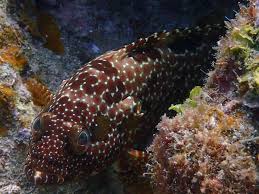The Role of the Dragon in Agricultural Ceremonies and Land Veneration in Chinese Culture

The dragon, a powerful and revered symbol in Chinese culture, plays an integral role in numerous rituals, ceremonies, and mythologies. In the context of agricultural ceremonies and land veneration, the dragon holds particular significance, as it embodies the harmonious relationship between humanity and the natural world. Historically, the Chinese dragon has been associated with water, fertility, and the forces of nature, all of which are vital to the prosperity of crops and the well-being of agricultural societies. This article explores the profound role of the dragon in Chinese agricultural rituals and ceremonies, as well as its connection to land worship and the deep respect the Chinese have for the earth’s abundance.
1. The Dragon as a Symbol of Fertility and Abundance
In Chinese culture, the dragon is synonymous with life-giving forces, especially those related to water and agriculture. It is believed that dragons have control over rivers, lakes, and rainfall, all of which are essential for crop growth and successful harvests. Because water is such a crucial element for agriculture, the dragon is seen as a protector of the land, ensuring that rain falls at the right time and that crops flourish.
Chinese agricultural societies have long relied on seasonal rains to sustain their crops. The dragon’s association with rainstorms and water is deeply embedded in the agricultural culture of China. In ancient times, when the agricultural success of a village or region was directly tied to the timing and quantity of rainfall, the dragon was honored as a divine being capable of ensuring abundance. As a result, many agricultural rituals and ceremonies feature dragons or dragon imagery, invoking the dragon’s power to bring favorable weather conditions.
The dragon, in this sense, is more than just a mythological creature—it is a tangible representation of the forces of nature that govern agriculture. By venerating the dragon, the Chinese sought to align themselves with these forces and ensure that their farming practices would be prosperous.
2. The Dragon in Agricultural Ceremonies
Agricultural ceremonies in China have long been essential for maintaining the health of crops and ensuring a bountiful harvest. These ceremonies often involve offerings to the spirits of the land, the gods of agriculture, and celestial beings like the dragon. These rituals were particularly common in ancient China, where agricultural societies relied on the careful timing of sowing and harvesting to ensure the survival of their communities.
In some regions, dragon dances and dragon boat races are part of agricultural celebrations, and the dragon is invoked as part of the ritual to summon rain or protect crops from natural disasters. The most notable of these ceremonies is the Dragon Boat Festival (端午节), which occurs on the 5th day of the 5th month of the lunar calendar. Although the Dragon Boat Festival is widely known for its competitive dragon boat races, the festival’s origins are deeply rooted in agricultural traditions and rituals to honor the dragon and ensure bountiful harvests.
Dragon boat races, for example, were once believed to be a way of appeasing the water gods, especially the dragon, and to invoke rain to nourish the crops. During the race, the dragon boats, adorned with dragon heads and tails, symbolized the movement of the dragon through water, calling upon its blessings for the coming season. The rhythm of the rowers’ strokes mirrored the natural rhythms of farming life, aligning human activity with the forces of nature.
3. The Dragon as a Protector of the Land
In Chinese cosmology, the land is sacred and is often seen as a living entity. The dragon, as a symbol of divine protection, is frequently invoked in ceremonies designed to protect the land from harm, whether it be from pests, drought, or other natural calamities. Agricultural societies in ancient China saw the land not just as a resource but as something that needed to be honored and respected. The dragon, as a celestial being with dominion over natural forces, was viewed as a guardian of the earth, ensuring that the land remained fertile and capable of sustaining life.
In many rural areas, land veneration ceremonies often featured the dragon as the central figure. These rituals, which took place during key points in the agricultural calendar, were meant to show reverence for the land and ask for the dragon’s protection. Offerings of food, incense, and symbolic objects were made to honor the dragon and its connection to the land.
In these rituals, the dragon was not just an abstract symbol but a living, breathing force that had the power to influence the success of the crops and the safety of the community. The idea of the dragon as a protector of the land underscores the belief that human existence is deeply intertwined with the natural world, and that balance and respect must be maintained for both to thrive.
4. The Role of the Dragon in the Taoist Philosophy of Nature
Taoism, one of the major philosophical and religious traditions in China, emphasizes the importance of living in harmony with the natural world. Central to Taoism is the concept of Qi (气), the vital life force that flows through all things. The dragon, as a symbol of vitality and energy, is closely linked to the Taoist understanding of nature. In Taoism, the dragon is often associated with the flowing energy of the universe, and by honoring the dragon, individuals seek to align their lives with the natural flow of Qi.
The Taoist philosophy also stresses the interconnectedness of all things, including the land, the heavens, and the earth. In this context, the dragon represents the divine forces that govern the balance of the natural world. During agricultural rituals, Taoist priests would often perform ceremonies that invoked the dragon’s energy to bring about harmony between the heavens and the earth, ensuring that crops would be nourished and the community would prosper.
In Taoist rituals, the dragon is often depicted as a powerful and fluid being, capable of navigating the complex forces of nature. Its role in agricultural ceremonies reflects the Taoist belief that the forces of nature, including the land, water, and air, must be respected and maintained in balance to ensure the health of the land and its people.
5. The Dragon in Land Worship and Agricultural Festivals
Land worship, or the reverence of the earth as a divine entity, has been a central aspect of Chinese culture for centuries. In many rural regions, the earth is considered sacred, and ceremonies are held to honor the spirits of the land. These ceremonies often take place at the beginning of the planting season or before the harvest, and the dragon is invoked to bring prosperity and protection to the land.
During these festivals, the dragon is often symbolized in the form of sculptures, paintings, or decorations, and it is featured prominently in the rituals and prayers offered by the community. These ceremonies are a way of acknowledging the importance of the land and the forces that govern it, with the dragon serving as a representation of the power and mystery of nature.
One notable example of land veneration is the Spring Plowing Ceremony (春耕祭祀), which marks the beginning of the planting season. This ceremony often involves offerings to the earth goddess and other spirits, with the dragon symbolizing the power of nature that is needed to ensure a successful planting season. The dragon is believed to bring rain and fertility to the land, which in turn ensures that crops will grow strong and plentiful.
6. The Dragon and Agricultural Success in Mythology
Chinese mythology is filled with stories about dragons and their connection to agriculture. One famous myth involves the Yellow Emperor (黄帝), who is said to have invoked the dragon to help him win the battle for control over the land. According to the myth, the Yellow Emperor’s success was attributed to his ability to harness the power of the dragon, which provided him with the necessary resources—such as water and fertile land—to establish a prosperous kingdom.
In another myth, the dragon is said to have created the Five Grains (五谷), which are essential to agricultural societies in China. The dragon, as a celestial being, bestowed these grains upon the earth, ensuring that the land would be capable of sustaining the Chinese people for generations. These stories reinforce the idea that the dragon is not only a protector of the land but also a key figure in the creation of the earth’s abundance.
7. The Importance of the Dragon in Modern Agricultural Ceremonies
While modern agricultural practices in China have evolved, the dragon’s role in agricultural ceremonies has not diminished. Today, the dragon continues to be a central figure in various agricultural festivals and celebrations, particularly in rural areas. The dragon symbolizes not only the continuity of ancient agricultural traditions but also the ongoing connection between Chinese people and the land that sustains them.
In contemporary times, dragon dances and dragon boat races still take place during important agricultural festivals like the Dragon Boat Festival. These celebrations are a way of honoring the dragon’s role in ensuring the fertility of the land and the prosperity of the community. The rituals may have changed over time, but the core message remains the same: the land is sacred, and the dragon is its divine guardian.
8. Conclusion
The dragon has played a vital role in Chinese agricultural ceremonies and land veneration throughout history. As a symbol of fertility, abundance, and divine protection, the dragon has been invoked in rituals designed to ensure bountiful harvests, safeguard the land, and maintain harmony between humanity and nature. From ancient agricultural practices to modern festivals, the dragon continues to serve as a powerful symbol of the sacred connection between the Chinese people and the land that sustains them. Its presence in these ceremonies reminds the people of the importance of respecting the natural world and the forces that govern it, ensuring that the balance between heaven, earth, and humanity is maintained for future generations.

